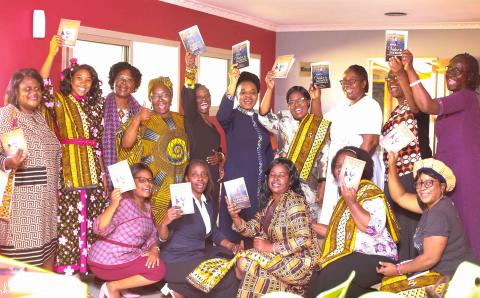We live in an increasingly secular culture. What I mean by that is that we live in a culture that no longer believes in or assumes the existence of God. Instead, plagued by a combination of faith and doubt, we lurch back and forth between receptivity to God and a tortured agnosticism.
Historians and scholars differ on exactly when the transition to secularism started. Canadian philosopher Charles Taylor provides an exhaustive account of it in his massive book A Secular Age, while Australian pastor and cultural commentator Mark Sayers gives a more accessible overview in an episode of his now-defunct podcast This Cultural Moment (“What Is Secularism?”, May 29, 2018).
What they say is that the world used to be an enchanted place. The divine was lurking around every corner, and people had a constant sense of the sacred. The world felt shot through with the power and presence of God.
Nowadays, though, it seems more complicated. It’s not quite that we’re disenchanted. It’s just that we’re differently enchanted. First, the monotheistic faiths of Judaism, Christianity, and Islam killed the pantheons of gods. Then, the Enlightenment’s rationalism and naturalism started killing monotheism. And now, a few hundred years later, we find ourselves less intrigued by God in general. We prefer our spirituality à la carte these days, on our own terms, at our own leisure—just like everything else.
But Sayers says we can’t live like that. Human beings can’t live well without transcendence, without the sacred, without a deep sense of meaning, significance, value, and purpose. “Meaning-making machines,” he calls us, and he says we’re driven to find that sense of meaning, significance, and purpose somewhere. We have to. Hollowing God out of our lives doesn’t mean we don’t worship. It just means we worship different things, because the “God-sized” hole still exists, needing to be filled.
Politics and Idolatry
One of those things we’ve started to worship is politics.
In the vacuum created by our attempted expulsion of God from our lives, many people have turned to their preferred political candidate, party, or platform as the source of the meaning, significance, value, and purpose they crave. “The rise of the political religions,” Sayers calls it. Put simply, people are using politics to try to plug the hole left by our purging God from our lives.
This, I think, is part of why our current culture war has taken on such dizzying significance for so many North Americans.
Put simply, if “we” (whoever “we” are) lose the culture war, we aren’t just losing our preferred vision/outcome/order/structure for society. We’re actually losing our sense of meaning, significance, value, and purpose. We’re losing our god. In other words, politics are no longer just politics. They’ve become for many a crusade of transcendent, spiritual, and sacred significance.
But that, plain and simple, is idolatry.
Idolatry is anytime we take something that’s not God and put it in God’s place, worshiping it and finding our meaning, significance, value, and purpose in it rather than God. And it doesn’t have to be a “bad” thing. It can be a good thing too. As Tim Keller used to say, “Idolatry is making anything other than God (good or bad) into an ultimate thing.”
That is what too many of us have done with politics. We’ve taken a good thing (appropriate political interest and involvement), and we’ve made it an ultimate thing, putting it in God’s place and trying to derive more meaning, significance, value, and purpose from it than it can truly offer.
Engage Appropriately
So what do we do instead?
Well, it’s certainly not to disengage from the political process entirely. That’s a cynical overreaction that leaves us passively indifferent to the things of this world, “too heavenly-minded to be of any earthly good,” as the saying goes.
Politics are, in fact, good. The simple fact is that politics matter, so as Christians we should be involved in politics. It’s part of who we are as human beings and therefore part of what we’re called to do. But we should keep our engagement with the political process in its proper place and not let it spin out of control to the point where we end up enslaved to an idol.
Avoiding Idols
After all, that’s what we’re called to do in every other area of our lives. John Calvin famously called the human heart an “idol factory” and said, “Man’s mind, full as it is of pride and boldness, dares to imagine a god according to its own capacity” (Institutes I.11.8). His point was that we can turn pretty much anything into an idol: our job, our car, our house, our spouse, even our country and our politics.
The challenge is keeping those things (literally everything) in their proper place: under God. That includes our politics too. That’s the job of the Christian: We need to constantly submit ourselves and our desires, everything that matters to us, to God. Only then will we keep those things from becoming idols, a religion that takes the place of God, and something we worship instead of him.
For me, at least, I’ve found a few things helpful for doing that with politics:
First, read Scripture. That might sound too simple. But I used to believe all sorts of things politically that I no longer do because of the Bible. Put simply, the more I read Scripture, the more I find my preferred political beliefs and positions challenged. And that’s a good thing. It’s Scripture working on my idols.
Second, get news and political commentary from a variety of perspectives. If you are a conservative, for example, you should tune in to or read from liberal or progressive news and political commentary. If you are a liberal, you should tune in or listen to conservatives. This is important for two reasons: First, pigeonholing ourselves into monolithic echo chambers where everyone says things we already believe reduces us from full human beings to parrots. It makes us people who just mindlessly repeat our party’s talking points, and that does no one any good (including us). Second, it helps us understand “the other side.” While that might not make us more sympathetic to their views, it does challenge the areas where we might be slipping into an unquestioned idolatry of our own views.
Third, try to get to know people from different political perspectives. Grab coffee with them. Ask about their thoughts. Listen. It’s not always easy, but it is beneficial: Now it’s not just “the conservatives” or “the liberals” who think that. It’s your friend, Jane. It’s your cousin, John. And while you still won’t agree with everything they say, it’ll help you love better, because now you know a real, live person who thinks the way “they” do.
Politics and Jesus
Politics are good. They’re important. They’re a crucial part of our society and culture, and there’s no denying that.
But they are not the be-all and end-all. Christ is. And we Christ-followers need to remember that.
After all, no matter how much we love our country or our politics, they didn’t save us. Jesus did. We therefore need to keep our politics (and everything else) in their proper place: under him.
Discussion Questions:
- Before reading this article, how would you have typically defined idolatry?
- The article focuses on the idolatry of politics. What other examples of idolatries are current in our culture?
- What examples can you give of political idolatry?
- What will you do or what are you already doing to put politics in its proper place in your life?
About the Author
Brandon Haan serves as the senior pastor at Ivanrest Church in Grandville, Mich. He lives in Grandville with his wife, Sarah, and their three children, Levi, Titus, and Audrey.








